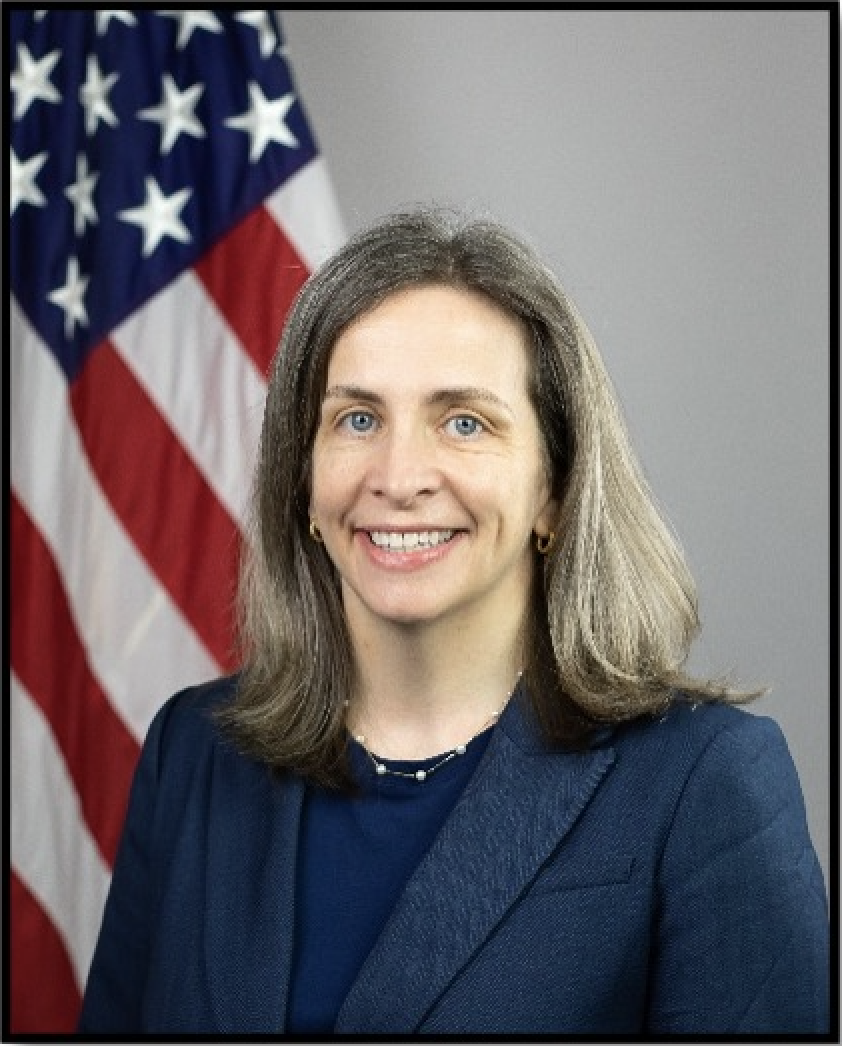-
New Security Broadcast | Sarah Ladislaw on US Climate Security and “Mutually Assured Resilience”
March 5, 2024 By Wilson Center StaffIn today’s episode of New Security Broadcast, ECSP Program Director Lauren Risi speaks with Sarah Ladislaw, Special Assistant to the President and Senior Director for Climate and Energy at the National Security Council (NSC). In the conversation, Special Assistant Ladislaw describes her role at the NSC and the most pressing climate security challenges facing the US moving forward. She also reflects on her recent address at the Munich Security Conference, and her vision for achieving “mutually assured resilience.” In today’s episode of New Security Broadcast, ECSP Program Director Lauren Risi speaks with Sarah Ladislaw, Special Assistant to the President and Senior Director for Climate and Energy at the National Security Council (NSC). In the conversation, Special Assistant Ladislaw describes her role at the NSC and the most pressing climate security challenges facing the US. She also reflects on her recent address at the Munich Security Conference, and her vision for achieving “mutually assured resilience.”
In today’s episode of New Security Broadcast, ECSP Program Director Lauren Risi speaks with Sarah Ladislaw, Special Assistant to the President and Senior Director for Climate and Energy at the National Security Council (NSC). In the conversation, Special Assistant Ladislaw describes her role at the NSC and the most pressing climate security challenges facing the US. She also reflects on her recent address at the Munich Security Conference, and her vision for achieving “mutually assured resilience.”On Her Role at the National Security Council
I’m the Senior Director for climate and energy at the National Security Council and special advisor to the President. The National Security Council is essentially the foreign and security policy coordinator for the President and the national security advisor.
On climate and energy, we spent a lot of time working with various departments and agencies on things like the clean energy transition, and how we’re deploying clean energy technology, climate diplomacy, and how we’re thinking about COP 29 negotiations now and advancing the climate agenda. [We cover] things like climate security, adaptation and resilience, but we also do oil and gas supply, security and energy reconstruction in Ukraine.
On How Climate Security Played Out at the Munich Security Conference
This Munich Security Conference was notable for a couple of reasons. First, it included lots of voices from, from, beyond the traditional transatlantic construct that the Munich Security Conference has had in the past, which was helpful in broadening the dialogue.
Further, climate featured pretty prominently if you looked across a range of issues in a somewhat disaggregated format. There was a huge amount of programming and conversation even outside the formally-programmed climate sessions discussion on the role that climate and related issues have in shaping things like food security and water security and global health, but also critical minerals, clean energy transition, economic competitiveness and trade.
On Promoting Simplification for Climate Security Policymakers
Our job is really to make the problems of the world solvable and accessible. In the climate security community sometimes, because we want to talk about climate’s importance as a threat multiplier, or all the ways in which climate is like a vector into the things that people care about. And sometimes that can feel overwhelming. In a world where we’re also very conscious of limited time and limited resources, competing attention and agenda items can be problematic for a really important issue, like climate security.
One of the things that we wanted to focus on is, there’s a huge uptake in this idea on the clean energy side of the equation that we need to build resilience in supply chains. In order to do that we have to work together in building complementary capacities.
If we divide areas into issues that have global resonance, issues that have regional resonance, and then issues that have a vulnerability/fragility frame, we might do a better job thinking about which domain they live in, and our foreign and security policy, and help compartmentalize the nature of the how the threats manifest for, for policymakers writ large.
On Investments for Global Resilience
Our colleagues at USAID and SPEC have worked really hard in the context of the President’s “prepare” initiative. One of the things that I think has been really important that they’ve done over the last year or so is to launch a private sector call to action. The private sector has a huge role to play in reaping the return on investment that countries can experience by investing in preparedness now, rather than paying for the impact acts later, and we’re seeing this in multiple sectors of the economy.
On the NSC’s Upcoming Priorities
We need to continue to make sure that the investment from the Inflation Reduction Act is effective and that it starts to mobilize capital around the world connected to what’s going on in the United States, and we’ll continue to work with partners and allies who want to benefit from that. We also are working to address the global finance challenges we’re facing, including turning the corner on adaptation finance. Finally, we had a lot of really good signals about what we need to do to transition our posture on fossil energy, but also increase capacity for renewables and increase our ambition for the next round of nationally determined contributions.
We really want to make sure that this year we capitalize on all the really important progress that we’ve experienced, both domestically and internationally to ensure that the investment and activity we’ve seen over the last couple of years in clean energy, deforestation, mitigation, and adaptation [is effective]. We’re heading in the right direction, just not quite fast enough. And so we want to keep pushing on all of those really important issues.
Photo credit: Sarah Ladislaw Headshot, courtesy of National Security Council.
 A Publication of the Stimson Center.
A Publication of the Stimson Center.

 In today’s episode of New Security Broadcast, ECSP Program Director Lauren Risi speaks with Sarah Ladislaw, Special Assistant to the President and Senior Director for Climate and Energy at the National Security Council (NSC). In the conversation, Special Assistant Ladislaw describes her role at the NSC and the most pressing climate security challenges facing the US. She also reflects on her recent address at the Munich Security Conference, and her vision for achieving “mutually assured resilience.”
In today’s episode of New Security Broadcast, ECSP Program Director Lauren Risi speaks with Sarah Ladislaw, Special Assistant to the President and Senior Director for Climate and Energy at the National Security Council (NSC). In the conversation, Special Assistant Ladislaw describes her role at the NSC and the most pressing climate security challenges facing the US. She also reflects on her recent address at the Munich Security Conference, and her vision for achieving “mutually assured resilience.”




